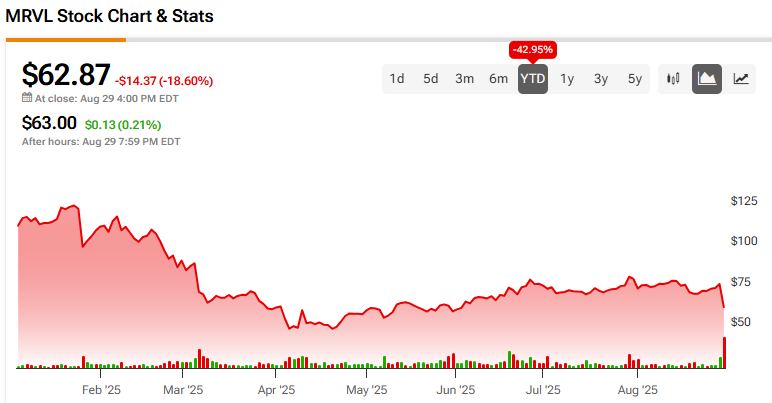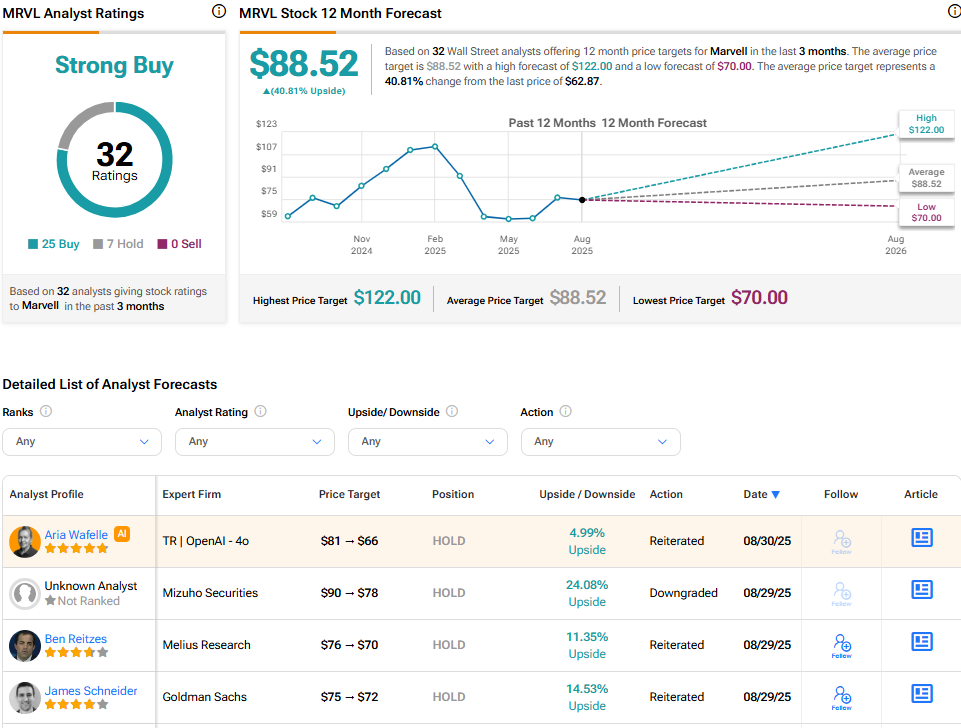Tools & Platforms
Tampa General & Palantir showcase the future of health care

At the recent Hill & Valley Forum in Washington, D.C., Laura DeBerardinis, senior nurse manager at Tampa General Hospital, shared the stage with policymakers, tech founders, and industry visionaries to discuss how AI tools are transforming the health care industry and saving lives in the Tampa Bay region.
“We’re seeing real, measurable improvements in fewer infections, better patient outcomes, and more lives saved,” said DeBerardinis. “With the help of AI, providers spend more time with patients and less time buried in paperwork.”
The summit brought together national leaders and industry experts to explore the future of artificial intelligence. Notable speakers included President Donald Trump, Vice President JD Vance, NVIDIA CEO Jensen Huang, and Palantir CTO Shyam Sankar, marking the launch of the White House’s new AI Action Plan and highlighting the growing role of AI in health care, infrastructure, and national security.
Tampa General Hospital’s collaboration with Palantir began in 2021 with the implementation of Foundry software. It expanded in 2024 with the deployment of Palantir’s Artificial Intelligence Platform (AIP) to create a systemwide Care Coordination Operating System. This platform powers real-time decision-making support tools and workflow automation for front-line care teams.
The Care Coordination Operating System builds on the successful implementation of Palantir’s Foundry software to revolutionize health care management, optimize operational efficiency and enhance patient outcomes. The application of Palantir’s software across the system has enabled Tampa General to reduce the time required to place patients by 83%, while post-anesthesia care unit (PACU) holds have declined by 28%. Additionally, the mean length of stay for sepsis patients has decreased by 30%.
John Couris, president and CEO of Tampa General, described the transformation as a fundamental shift in health care delivery. “With the power of AI and through our groundbreaking partnership with Palantir, we’ve connected data points to provide systemwide analysis that cuts through bureaucracy, breaks down barriers and optimizes our delivery model. The collaboration between Tampa General and Palantir is truly transforming the health care industry.”
Beyond the Palantir platform, Tampa General is also expanding AI adoption into clinical workflows. More than 500 physicians are now utilizing ambient listening technology that automatically drafts clinical notes, reducing documentation time by half and enhancing the patient experience.
As one of the nation’s leading academic health systems, Tampa General’s ongoing investment in smart, responsible AI integration is shaping the future of health care one life at a time.
Post Views: 0
Tools & Platforms
Marvell Technology Stock Plunges 18.6% as Weak Outlook Overshadows AI Gains

Marvell Technology (MRVL) shares crashed 18.60% on Friday after the company issued a weaker-than-expected forecast for the third quarter. The sharp decline came despite second-quarter results showing strong growth in revenue, steady profits, and earnings in line with expectations. However, investors focused on the outlook rather than the recent gains, which led to a selloff in the stock.
Elevate Your Investing Strategy:
- Take advantage of TipRanks Premium at 50% off! Unlock powerful investing tools, advanced data, and expert analyst insights to help you invest with confidence.
On Thursday evening, Marvell Technology reported adjusted earnings of $0.67 per share, matching The Street’s estimates. Revenue reached $2.006 billion, slightly below the $2.01 billion consensus. Even with this small gap, total revenue rose 58% from the same quarter last year. The company’s data center unit led the surge, with sales up 69% to $1.49 billion, and it now accounts for nearly three-quarters of Marvell Technology’s overall business.
Weak Forecast Weighs on Analysts’ View
However, the company’s guidance for the third quarter shifted the market’s focus. Marvell Technology projected revenue of $2.06 billion, give or take 5%. That figure came in below the Street’s $2.11 billion target. Executives said data center sales will stay flat in the coming quarter before improving toward year’s end. In the meantime, analysts noted that investors have grown used to upbeat reports from companies tied to artificial intelligence, so the lower outlook stood out.
During the earnings call, Chief Executive Matt Murphy said demand for custom silicon and electro-optics products remains strong, with more than 50 new AI design projects underway. Yet he acknowledged that timing around new deployments will affect near-term results.
After the release, several banks adjusted their stance. Bank of America’s five-star analyst Vivek Arya cut his rating on Marvell Technology to Neutral from Buy and reduced its price target to $78 from $90. UBS’s top analyst Quinn Bolton reduced his target to $80 from $85, retaining a Buy rating. Morgan Stanley five-star analyst Joseph Moore also dropped his target to $76 from $80 and a Hold position. Many of these cuts reflected caution around the pace of major cloud projects, including Microsoft’s (MSFT) Maia accelerator and Amazon’s (AMZN) next-generation chips.
Stock Levels and Market View
Marvell Technology shares have now fallen more than 40% in 2025 and trade about 50% below their January high of $126.06. Despite the weak forecast, the company posted $461.6 million in operating cash flow and kept gross margins at 59.4%. Investors will look to the fourth quarter and beyond for signs that key AI partnerships with Amazon and Microsoft can deliver stronger growth.
Is Marvell Stock a Buy?
Despite the stock’s crash on Friday, Marvell Technology continues to boast a Strong Buy consensus among analysts. The average MRVL stock price target stands at $88.52, implying a 40.81% upside from the current price.

Tools & Platforms
Meta reportedly explores using rival AI models to enhance its apps

Meta is exploring the use of AI models from Google and OpenAI to enhance its apps while advancing its own Llama AI technology.
Meta is reportedly exploring the use of artificial intelligence models developed by competitors, including Google and OpenAI, to improve AI features across its platforms. According to a report by The Information, executives at the Meta Superintelligence Lab have considered integrating Google’s Gemini model into the company’s Meta AI chatbot. The move would enable Meta to offer a more robust, conversational text-based solution for answering user search queries.
The report also indicated that Meta has held discussions about incorporating OpenAI’s technology into Meta AI and its other AI-powered features. These potential collaborations highlight Meta’s effort to strengthen its AI capabilities while continuing to develop its own large language model, Llama.
Strategic partnerships as a temporary measure
A Meta spokesperson stated that the company is taking an “all-of-the-above approach to building the best AI products,” which includes both building in-house solutions and partnering with external organisations. The report noted that while Meta is exploring external technology, the company’s primary goal is to refine and advance its own AI systems. Leveraging competitor models would only be a temporary measure to accelerate innovation and keep pace with rivals in the rapidly evolving AI market.
Meta’s interest in adopting external AI tools comes at a time when competition in generative AI development is intensifying. By accessing technologies from industry leaders such as Google and OpenAI, Meta aims to enhance user experiences on its apps while gaining insights that can help strengthen future iterations of Llama.
Internal AI adoption and recruitment efforts
The Information reported that Meta employees are already using Anthropic’s AI models to support the company’s internal coding assistant. This indicates that Meta has been integrating third-party AI solutions internally even as it invests heavily in its own research and development.
Additionally, Meta has been actively recruiting AI researchers from Google and OpenAI to enhance expertise at its Superintelligence Lab. These recruitment efforts reportedly include highly competitive compensation packages designed to attract top talent from across the AI sector.
As Meta continues to refine its AI strategy, the company’s willingness to work with external partners shows its commitment to creating cutting-edge products. The temporary reliance on competitor models could help Meta accelerate development and maintain a strong position in the AI race.
Tools & Platforms
Tech expert warns of 'alarming' AI behavior after teen's death – Fox News
-
Tools & Platforms3 weeks ago
Building Trust in Military AI Starts with Opening the Black Box – War on the Rocks
-

 Ethics & Policy1 month ago
Ethics & Policy1 month agoSDAIA Supports Saudi Arabia’s Leadership in Shaping Global AI Ethics, Policy, and Research – وكالة الأنباء السعودية
-

 Business2 days ago
Business2 days agoThe Guardian view on Trump and the Fed: independence is no substitute for accountability | Editorial
-

 Events & Conferences3 months ago
Events & Conferences3 months agoJourney to 1000 models: Scaling Instagram’s recommendation system
-

 Jobs & Careers2 months ago
Jobs & Careers2 months agoMumbai-based Perplexity Alternative Has 60k+ Users Without Funding
-

 Funding & Business2 months ago
Funding & Business2 months agoKayak and Expedia race to build AI travel agents that turn social posts into itineraries
-

 Education2 months ago
Education2 months agoVEX Robotics launches AI-powered classroom robotics system
-

 Podcasts & Talks2 months ago
Podcasts & Talks2 months agoHappy 4th of July! 🎆 Made with Veo 3 in Gemini
-

 Podcasts & Talks2 months ago
Podcasts & Talks2 months agoOpenAI 🤝 @teamganassi
-

 Mergers & Acquisitions2 months ago
Mergers & Acquisitions2 months agoDonald Trump suggests US government review subsidies to Elon Musk’s companies




















